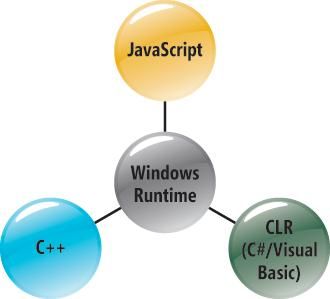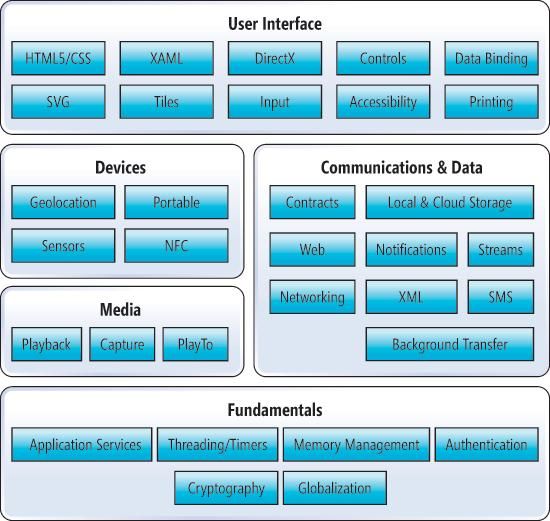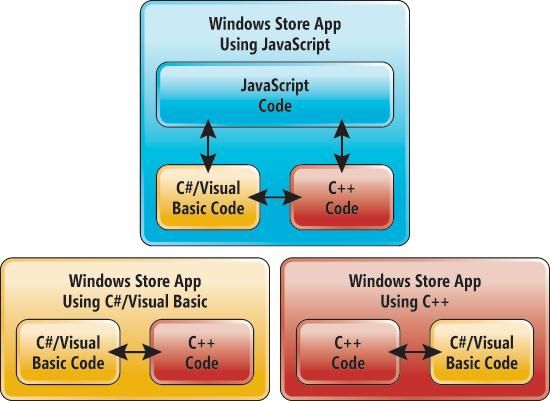Reimagining App Development with the Windows Runtime
The Windows Runtime Enables Language Choice

The Windows Runtime Is Natural and Familiar
[DllImport("avicap32.dll", EntryPoint = "capCreateCaptureWindow")] static extern int capCreateCaptureWindow( string lpszWindowName, int dwStyle, int X, int Y, int nWidth, int nHeight, System.IntPtr hwndParent, int nID); [DllImport("avicap32.dll")] static extern bool capGetDriverDescription( int wDriverIndex, [MarshalAs(UnmanagedType.LPTStr)] ref string lpszName, int cbName, [MarshalAs(UnmanagedType.LPTStr)] ref string lpszVer, int cbVer);
using Windows.Media.Capture;
MediaCapture captureMgr = new MediaCapture();
await captureMgr.InitializeAsync();
// Start capture preview; capturePreview
// is a CaptureElement defined in XAML
capturePreview.Source = captureMgr;
await captureMgr.StartPreviewAsync();The Windows Runtime Is Rich in Functionality

The Windows Runtime Is Fast and Fluid (Native and Async)
The Windows Runtime Enables Hybrid Apps

Frequently Asked Questions
Q. Is the Windows Runtime a replacement for the CLR or the Microsoft .NET Framework?
A. No. The Windows Runtime does not replace the .NET Framework or any other frameworks. When you build a Windows Store app in C#, your code is still executing using the CLR. Not only that, but a subset of the .NET Framework (as well as Win32 and COM) is available for you to use when building your Windows Store apps.
Q. So when writing Windows Store apps in C++, I’m using C++/CLI?
A. No. Code using the Windows Runtime for Windows Store apps is written using C++/CX. Though it may look like C++/CLI at first, it is truly native. You won’t introduce garbage collection or other C++/CLI features into your native app.